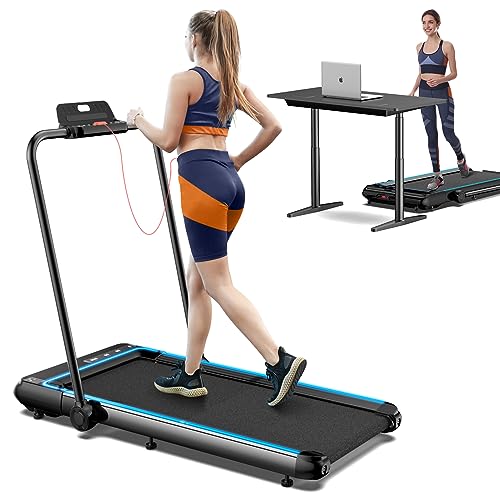How Walking Machine Has Become The Top Trend On Social Media
The Walking Machine: A Comprehensive Guide to Your Fitness Companion
In today's busy world, where time is a luxury, preserving a constant exercise regimen can be a challenge. For lots of, a walking machine— typically called a treadmill— works as an ideal physical fitness buddy. This article offers a thorough take a look at walking machines, including their benefits, types, maintenance tips, and regularly asked concerns.
Why Choose a Walking Machine?
Walking machines provide a useful and efficient way to incorporate cardiovascular workout into every day life. Here are numerous essential advantages:
- Convenience: Walking machines enable people to work out anytime, despite climate condition or time restrictions. They are perfect for busy schedules.
- Flexibility: Users can stroll, jog, or perform at their own speed and strength.
- Safety: Walking machines provide a lower danger of injury compared to outdoor walking or running, particularly for beginners or those recuperating from injuries.
- Tracking Progress: Many treadmills come with integrated screens that track metrics like speed, range, and calories burned.
Types of Walking Machines
When considering a walking machine, it's vital to pick the best type based on private physical fitness goals and space constraints. Below are the main types of walking machines:
Type
Description
Manual Treadmills
These machines do not have a motor, and users need to walk or run to rotate the belt.
Electric Treadmills
Powered by an electric motor, enabling users to set the speed and slope effortlessly.
Folding Treadmills
Developed for simple storage, these treadmills can be folded when not in use.
Desk Treadmills
Suitable for a dual work and workout environment, these compact machines permit walking while working.
Slope Trainers
These allow users to imitate uphill walking, enhancing workout intensity and calorie burn.
Selecting the Right Walking Machine
Selecting the best walking machine can substantially impact inspiration and effectiveness. Here are some elements to consider:
Key Features to Look For
- Motor Power: An effective motor ensures a smooth and consistent exercise. For periodic walkers, a 1.5 HP motor is generally sufficient; for much heavier usage, look for 3.0 HP and above.
- Belt Size: A wider and longer belt provides more space for a comfy stride. Standard sizes range from 16 inches wide and 50 inches long.
- Slope Options: Adjustable incline settings can imitate walking or running uphill, increasing the intensity of the exercise.
- Shock Absorption: Good shock absorption reduces the threat of joint injuries and improves convenience.
- Console Features: Look for built-in workouts, heart rate displays, and connectivity functions like Bluetooth for a more engaging experience.
Budget Considerations
Walking machines been available in a large range of costs, depending on features and building and construction quality. Here's a rough budget plan breakdown:
Price Range
Functions
Under ₤ 300
Fundamental manual or little electric treadmills with minimal features.
₤ 300 – ₤ 700
More advanced electric treadmills with incline, medium power motors, and much better guarantees.
₤ 700 – ₤ 1500
Top quality electric treadmills with larger integrated displays, substantial features, and service warranties.
₤ 1500 and above
High-end designs providing advanced innovation, features, and durable construction for severe physical fitness lovers.
Upkeep Tips for Your Walking Machine
To ensure durability and optimal efficiency of a walking machine, consider the following maintenance tips:
- Regular Cleaning: Dust and sweat can accumulate on the machine and the belt. Wipe down the surface areas and tidy the belt routinely.
- Lubrication: Depending on the model, lubricating the running belt periodically can avoid wear and tear. Examine the manufacturer standards for suggested lubrication schedules.
- Examination: Periodically inspect the machine for loose screws or worn parts. Tighten up and change as required.
- Calibration: Occasionally, check the calibration of your machine's metrics to ensure they offer accurate data.
- Appropriate Use: Follow the producer's recommendations for weight limitations and operational standards.
FAQs About Walking Machines
1. Are walking machines a great exercise?
Yes, walking machines provide an outstanding cardiovascular workout, can assist with weight-loss, and enhance total health.
2. How frequently should I utilize a walking machine?
Aim for a minimum of 150 minutes of moderate-intensity aerobic activity weekly, which can quickly be accomplished with routine sessions on a walking machine.
3. Can I drop weight on a walking machine?
Yes, incorporating a walking machine routine into a healthy diet plan can promote weight-loss, specifically if integrated with periods and incline training.
4. Is it safe for elders to utilize a walking machine?
Yes, walking machines can be safe for elders with low-impact settings and security features like hand rails. However, people should talk to their doctor before beginning any exercise program.
5. What's the difference between a treadmill and a walking machine?
The term “walking machine” usually describes a treadmill planned for walking, while “treadmill” can refer to machines utilized for different intensities, consisting of running.
With their versatility and convenience, walking machines can substantially improve one's physical fitness journey. By carefully picking the right type, ensuring proper upkeep, and integrating various exercise strategies, users can optimize their walking machine's benefits. index to any exercise routine, consistency is key to accomplishing enduring fitness outcomes.
